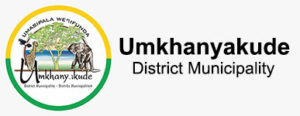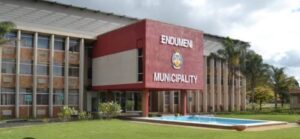(The following debate was delivered by DA KZN Spokesperson on Public Works and Infrastructure, Tammy Colley, MPL during a KZN Legislature Budget Sitting held today)
• DA welcomes DPWI MEC, Martin Meyer’s firm action against criminal syndicates parading as construction companies
• DA applauds blacklisting of contractors who abandon sites and deliver substandard work
• DPWI’s bold move to dispose unutilised and vacant state properties offers a path toward revenue generation and reduced municipal debt
The budget for KZN’s Department of Public Works and Infrastructure (DPWI) funds the very foundation of government service delivery – infrastructure that houses our schools, clinics offices and programmes that employ thousands of our people. The DPWI’s mission is to improve the lives of KZN’s people through sustainable infrastructure development and property management.
This department holds immense responsibility, a weight that has not always been carried well, but as we debate today’s budget allocation, we must acknowledge a radical shift in the DPWI’s performance.
Since the installation of KZN’s Government of Provincial Unity (GPU) of which the DA is a solid partner and the appointment of DPWI MEC, Martin Meyer, there have been numerous signs of improvement and progress in turning this department around. These include;
• A renewed effort to enforce blacklisting of contractors who abandon sites and deliver substandard work – with six recently removed from the DPWI payroll – marking a clear commitment to transparency and performance
• A firm stand against criminal syndicates parading as construction companies, allowing stalled projects to proceed
• The review of advance payments to municipalities for property rates, which has begun to stabilise the department’s liquidity and improve cash flow
• The bold move to begin disposing of unutilised and vacant state properties – long overdue but now gaining momentum – offering a path toward revenue generation as well as reduced municipal debt and;
• A refocus on long-term leases to activate economic opportunity and reduce vandalism and hijacking of unused buildings.
Despite these gains, the DPWI remains under significant financial strain due to budget pressures and debt. The R350 million monthly overdraft and ballooning municipal property rates reflect not just poor historical planning – but a system that must be fundamentally restructured. The DA welcomes the additional R168 million allocated for property rates and the R5.4 million Extended Public Works Programme (EPWP) grant. But the reality is that without sustained financial discipline and structural reform, these will be stopgap measures.
To ensure financial discipline within the DPWI, the DA wants to see monthly reporting to the legislature’s portfolio committee on municipal debt and supplier payments. We also want to see a debt clearance roadmap, coupled with internal cost-containment reforms and stronger treasury oversight. This will help stabilise the department’s financial health.
The DPWI’s major capital infrastructure projects include the rehabilitation and upgrade of the Legislature Administration (LA) Complex Building in Ulundi, renovations to the Mayville Lecture Hall, the UGU district office roof and finalising the Nongoma sub-district perimeter fence. Then there is the rehabilitation of state-owned assets damaged during KZN’s July 2021 unrest. The success of these projects will depend entirely on contractor performance and project oversight.
The DA also wants to see a live contractor performance delivery dashboard to track delivery, costs and compliance. By adopting a whole-of-society approach, partnering with engineering professionals, private enterprise, local businesses and communities the DPWI will be able to ensure value for money as well as skills transfer.
The department’s EPWP should be a lifeline for the unemployed. Regrettably, during the past, it has been politicised and has lacked direction, clarity, consistency and accountability. Under MEC Meyer, the department is trying to prioritise EPWP co-ordination across KZN’s municipalities and districts. But this needs to be taken even further.
EPWP must be turned into a programme that delivers change to those without jobs by partnering with TVET colleges and private training institutions to ensure that participants are skilled once they have completed the programme. A Skills Passport system could be introduced to track training and empower beneficiaries to graduate into long-term employment. EPWP participants could also be used for urgent maintenance in schools, clinics, libraries and other state-owned facilities. KZN has very few government buildings that do not have an urgent need for maintenance.
The DPWI has rightly recognised the strategic potential of its unutilised land and buildings. The DA strongly supports the move to dispose of non-strategic assets through transparent processes for the benefit the public. We also support the prioritisation of long-term leases – and in some cases transfer of assets to NGOs, youth businesses and community-based developers in order to unlock social and economic returns. The potential is endless – training hubs, co-working spaces, artisan workshops and safe places – not built with borrowed money – but through smart use of what government already owns and by finding creative solutions.
Programme 1 (Administration) provides MEC Meyer with strategic leadership and support. This budget focuses on building a capable and ethical state – and that must start internally. The DA applauds the move to take the department forward into the digital age, with digital procurement and document management systems. This will significantly reduce delays and corruption risks. The DPWI still has vacancies and critical posts must be filled based on qualifications, not political connections. Training and mentorship opportunities also need to be ensured for departmental staff, interns and in-service learners to ensure continuity and institutional memory.
The DA acknowledges the many groundbreaking ideas introduced within KZN’s DPWI by MEC Meyer. We also recognise his efforts to steady the ship, instil discipline, and drive reform.
As part of KZN’s GPU, the DA will continue to strive for good governance and supports all efforts that bring our province closer to efficient, ethical and impactful public infrastructure delivery. We will not shy away from holding the DPWI to account. Progress must not be symbolic – it must be visible, measurable and felt by the people of our province. The DPWI’s vision is to create an inclusive economy through sustainable infrastructure development and property management – this budget must do just that.








